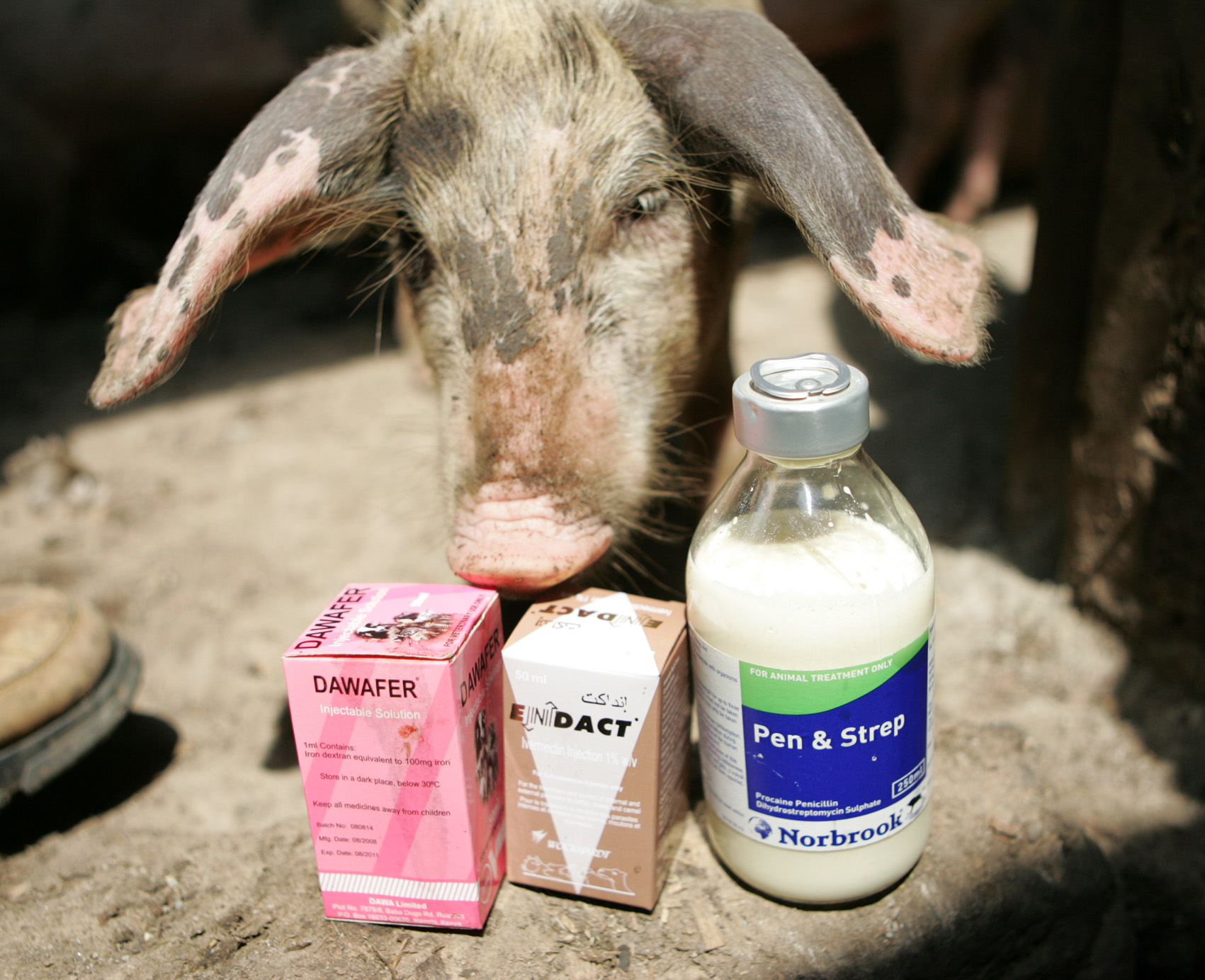"We got together and decided that living hand-to-mouth was hard enough without the label of an ex-convict; we had to do something on our own, even if it took years for it to become profitable," group chairman Peter Ngigi said.
"That is when we opted for pig-rearing; it was easy to find food for the animals as we go round scavenging from hotel bins for their feed. We later bought two cows and some goats."
Ngigi, 21, and his friends, who grew up in the slums, had several brushes with the law for petty crimes. Some of them served time in prison. The place they call home is called Kosovo in reference to intense gang fighting in 2002, when the area became a no-go zone for the Mungiki, a proscribed quasi-religious militia group that controls other slum areas in the city.
Like most slums in the city, conditions in Kosovo are terrible; unplanned and congested houses, open sewers, few toilets for hundreds of people, no running water and the polluted Nairobi River running through it.
|
Photo: Julius Mwelu/IRIN  |
| Peter Ngigi, the chairman of the Kangaroo Youth Self-Help Group attends to a piglet in Kosovo area, Mathare slum, in Nairobi |
Two years after they started their project, Ngigi and his friends have 22 pigs, three goats and three kids as well as two cows, housed in an unfinished, semi-permanent building.
"The recent swine flu scare has been the greatest setback [because] we are not able to sell the pigs," Ngigi told IRIN on 26 May. "We hope the disease does not break out in Kenya; we would be finished."
The Kangaroo Youth Self-Help Group project is restricted, however, because most members have limited knowledge of animal husbandry and marketing.
"We had hoped this project would lift us out of poverty; although we have yet to depend on it entirely for our upkeep, we are not giving up," Hillary Wachira, 25, said.
He said they were motivated to start pig-rearing by another young man, who has since left the slum.
"Kariz [a nickname] even managed to buy himself two matatus [taxis] by rearing pigs here in Kosovo, which he would then sell to butchers in the area and to those in other parts of the city. So we thought, why not embark on something similar, perhaps we could also make something of our lives," Wachira said.
The main challenge, Ngigi said, was finding space for the animals. They only got lucky when a fellow slum resident, who had reared pigs in the past, allowed them to use her unfinished building for their project.
"The woman who owns this building is helping us; we pay about 1,000 shillings a month [US$13] which is really not the going rate for rent in this area," Ngigi said.
"She also gave us advice on how to take care of the pigs; the right time to de-worm them, the right amount of food for the piglets and even showed us the agro vet shop from where we buy drugs."
|
Photo: Julius Mwelu/IRIN  |
| Hillary Wachira, a member of the Kangaroo Youth Self-Help Group in Kosovo area of Mathare, attends to one of the group's cows |
Members appealed for help in training and marketing.
"Whenever we buy drugs for the animals we make sure we know the right doses because we have lost some animals in the past after injecting them with the wrong doses," George Mworia, another member of the group, said.
"What we really need is training on ways of keeping these animals so as to curb unnecessary deaths; often we rely only on the advice of people who had kept pigs in the past."
The group also lacked a market for their products.
"We have approached several butchers to tell them we can supply the animals regularly but none has got back to us; we sometimes wish we could get help from the [government's] Youth Enterprise Fund but we don't know how to go about it, where do we begin?" he asked.
Ngigi said the group would like to expand to environmental conservation as they are situated right next to the polluted Nairobi River.
"We would like to plant trees on the river bank to prevent soil erosion that is eating into our space," he said. "We will not tire trying as we hope to one day live off this project; if only we had guidance and training."
js/mw
This article was produced by IRIN News while it was part of the United Nations Office for the Coordination of Humanitarian Affairs. Please send queries on copyright or liability to the UN. For more information: https://shop.un.org/rights-permissions





